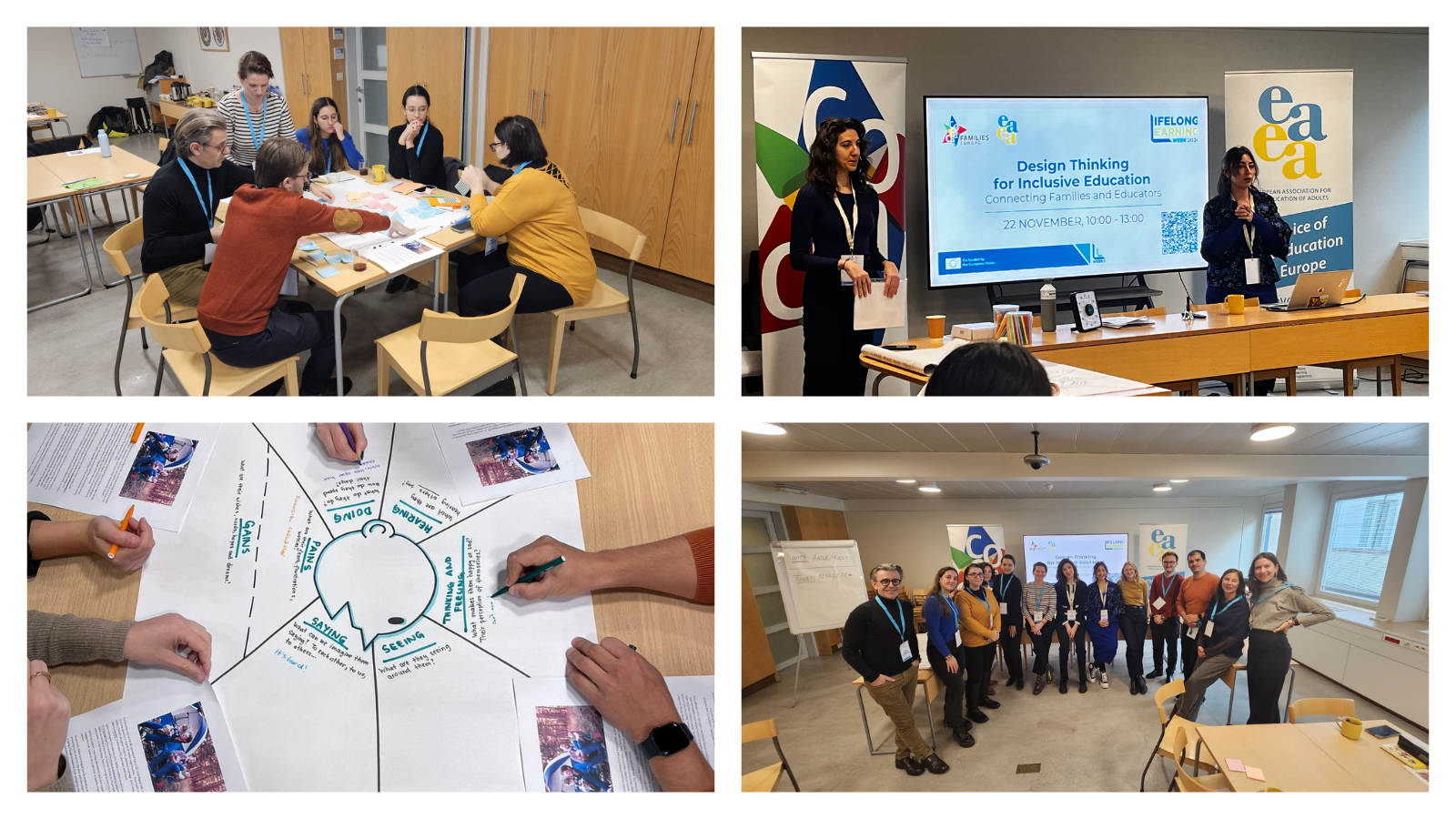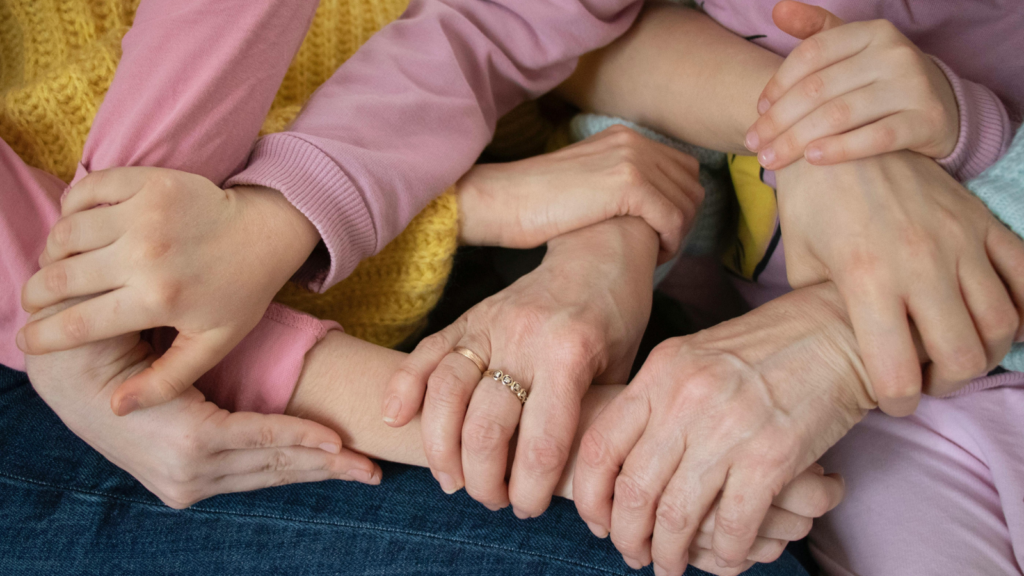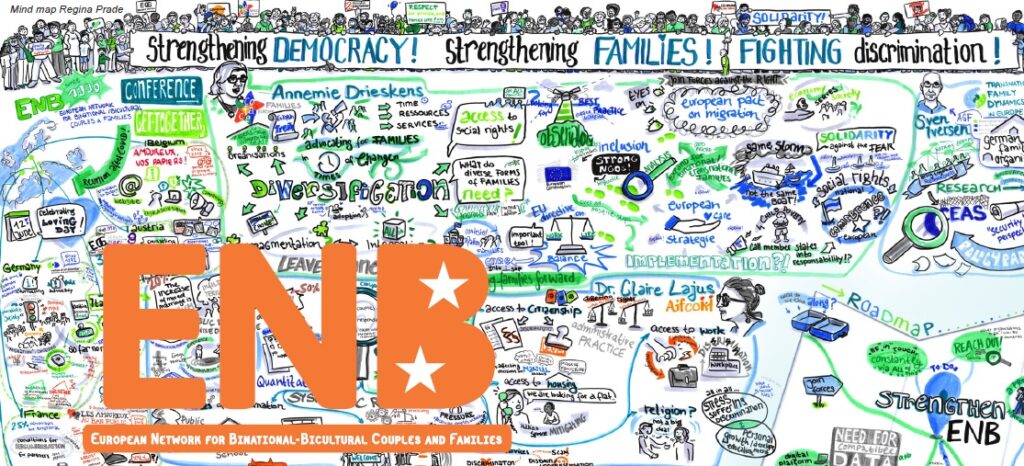The Lifelong Learning Platform’s 14th edition of the Lifelong Learning Week (LLLWeek) took place in November 2024 and explored LLLP’s annual theme “21st century challenges for the educator profession; a call for system change“, across +20 workshops, events and networking moments. COFACE was glad to join forces with LLP and bring the family perspective into the conversation by co-organising a workshop on “Design Thinking for Inclusive Education: Connecting Families and Educators”
The workshop was built on the momentum from COFACE’s 2024 Dublin conference, where The Lifelong Learning Platform, The European Association for the Education of Adults and COFACE Families Europe united to address gaps in EU education and training policies. Their collaboration centers on the need for a “Family Test” to ensure education systems reflect the realities of families, parents, and carers. This would help break down barriers and make lifelong learning accessible for all types of families without discrimination.
Why Design Thinking?
Design Thinking was chosen as the workshop’s approach because it focuses on understanding real-life experiences and encourages creative problem-solving. This method allowed participants to explore practical solutions while keeping families’ diverse needs at the forefront of discussions.
Generating ideas and outcomes
Workshop participants proposed actionable ideas, such as flexible education formats, recognition of family-acquired skills, and improved access to information. They also stressed the importance of family involvement in education, intergenerational learning, and personalised support, showing how education systems must adapt to better serve families and educators.
The importance of co-creation
This workshop demonstrated the power of collaborative spaces in shaping inclusive policies. Hearing voices from diverse backgrounds encouraged innovative solutions, proving that co-creation and co-implementation are essential for building fair, adaptable education systems that truly work for all.





